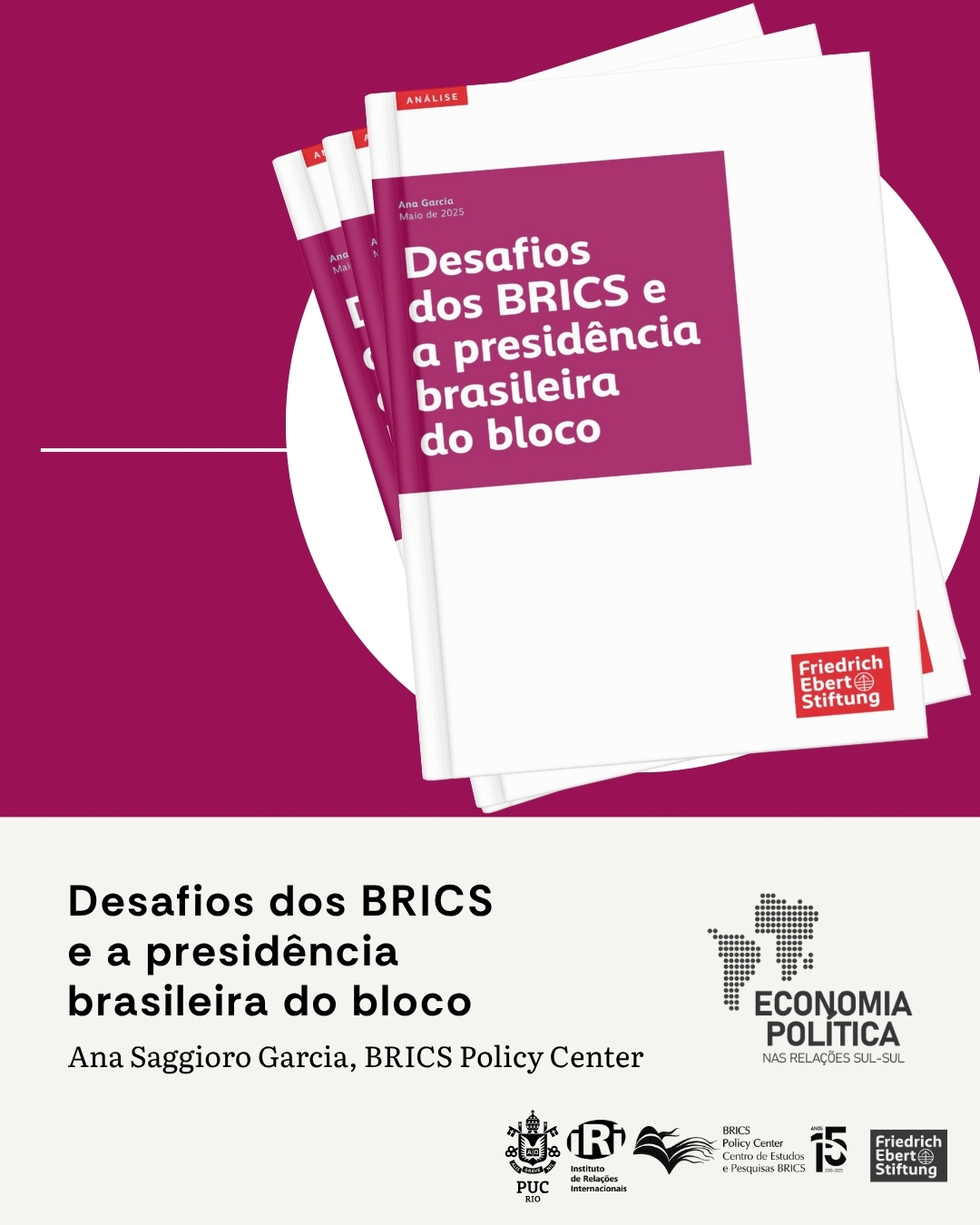
Ana Saggioro Garcia, Professor at UFRRJ and Coordinator of the Research Group “The Political Economy of South-South Relations” at BPC, published an article for the Friedrich Ebert Foundation Brazil.
The article, entitled “Challenges for the BRICS and the Brazilian Presidency of the Bloc”, analyzes the trajectory and challenges of the BRICS, focusing on Brazil’s presidency of the group in 2025. In this context, it highlights that the BRICS — formed by Brazil, Russia, India, China, and South Africa — initially emerged with a reformist agenda aimed at increasing the representation of the Global South in multilateral institutions. However, this agenda lost momentum due to geopolitical tensions, such as the rivalry between the U.S. and China and Russia’s invasion of Ukraine. As a result, the bloc now has a more geopolitical character, with over 20 countries interested in joining. Her analysis proposes three dimensions for understanding the BRICS: (i) geopolitics and interstate disputes; (ii) cooperation and intra-BRICS asymmetries; and (iii) the social and environmental impacts of megaprojects in Global South territories.
To read the full article, visit:

